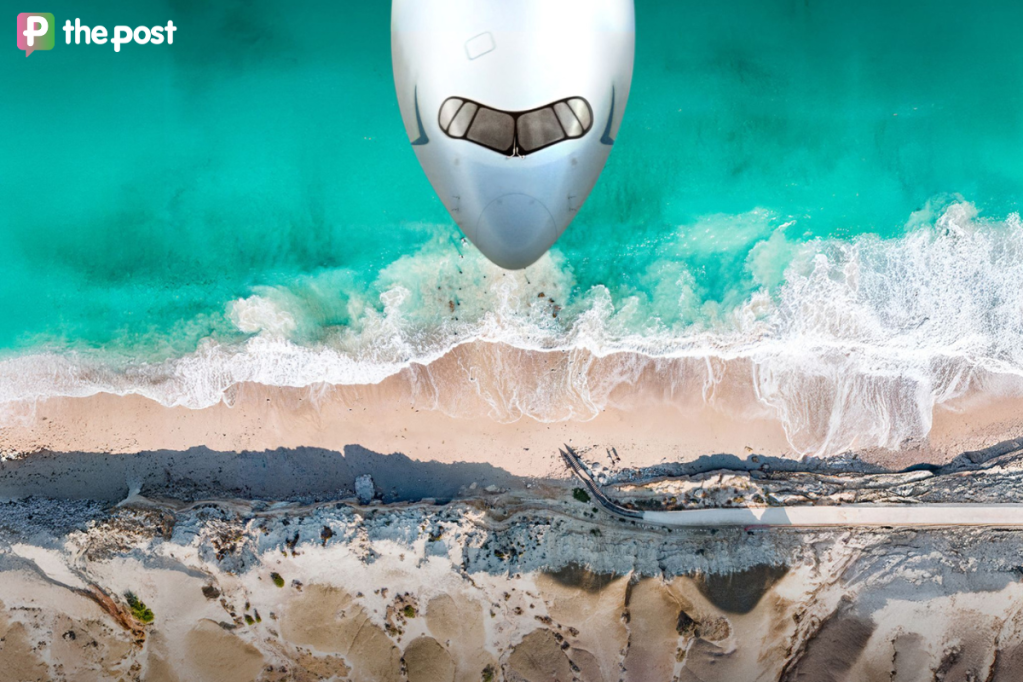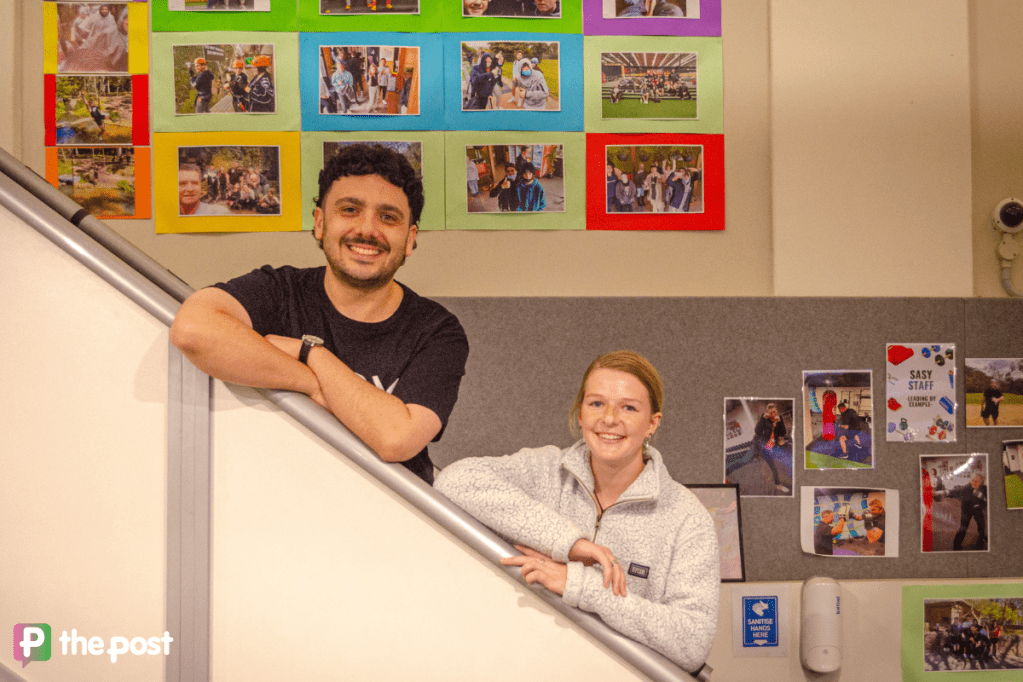What we know today, Thursday February 3
South Australia has reported another 1583 COVID-19 cases and one more death as the number of active infections across the state continues to fall.

- Another SA COVID death, 1583 cases
- Scrutiny over aged care COVID deaths amid winter flu warning
- Airlift for stranded travellers considered as supply drops continue for flood-hit areas
- Labor asks to recall Parliament to allow COVID-isolated to vote
- Results in on world-first “human challenge” COVID trial
- Court told Australian VC winner ordered Afghan execution
- US sends more troops to eastern Europe amid Ukraine tensions
Another SA COVID death, 1583 cases
South Australia has reported another 1583 COVID-19 cases and one more death as the number of active infections across the state continues to fall.
Premier Steven Marshall says active cases are down to 18,308, the lowest number for some time.
“What we’re now seeing is a settling of the numbers in South Australia,” Marshall said this morning.
“We’re starting to see those numbers plateau a bit. We’d like to see them go lower.”
SA has 226 people in hospital including 18 in intensive care, with five on ventilation.
Scrutiny over aged care COVID deaths amid winter flu warning
COVID-19 deaths in aged care will be scrutinised by a new taskforce as the federal government comes under intense pressure about high numbers of fatalities from the Omicron wave.
Chief Medical Officer Paul Kelly says Australia has now passed the peak of Omicron infections.
But he warns another wave, alongside a flu wave, is expected in winter.
“I do believe that we will have another wave of Omicron in winter,” he told reporters in Canberra on Thursday.
“I think we will have a flu wave in winter for the first time … since the beginning of 2020.”
He stressed the death rate from Omicron was 0.1 per cent as the federal government faced intense scrutiny over high numbers of deaths in aged care.
“Because of the better clinical care and the surge capacity we are putting into the sector, because of our very skilled health staff working at the frontline, because of all of those things, we have a spectacularly low rate of death,” Kelly said.
“That is not to discount the fact that we’ve had a large number of deaths.”
The health department is moving to establish a specific task force to look at virus deaths in aged care.
People over the age of 70 accounted for 84 per cent of 1103 deaths recorded from December 15 until the end of January.
Another 24 per cent of these deaths were in people over the age of 90.
You might like
“We will be setting up a specific task force in the department to look at that and doing everything we can to get more detail about the issues,” Kelly said.
He flagged one state in particular would be providing a “granular detail” about deaths, with that information to be extrapolated to the rest of the country.
Kelly also said some people in palliative care were choosing not to get the booster.
“There are very good reasons in aged care where people themselves, or their families, decide that they do not want protection against severe illness. They are on that palliative pathway,” he said.
Airlift for stranded travellers considered as supply drops continue for flood-hit areas
Stranded travellers may be flown out of Coober Pedy because roads are still blocked, as SA Health today sends a plane with supplies to the cut-off APY Lands and Premier Steven Marshall visits storm-hit areas.
The airlift is being considered for an RAAF aircraft later today. The RAAF came to the outback SA town’s aid earlier this week with 20 tonnes of food and other supplies. A state emergency declaration was issued at the weekend to deal with the wild weather’s impact across South Australia.
Rail lines have been cut and the Stuart Highway linking Adelaide and Darwin remains underwater in parts, hampering repair efforts, while roads to the remote APY Lands are also impassable.

Flooding is delaying efforts to repair the damaged Stuart Highway. Photo: Department for Infrastructure and Transport/LinkedIn
The Premier said he understood the frustration of those stuck in Coober Pedy but the conditions in the area remained hazardous.
“We really do need to be very clear that it is still a very dangerous situation,” he said on Wednesday.
Marshall will today visit Port Augusta and Glendambo, which suffered damage during the storms.
He said that nine planeloads of supplies had so far been delivered to cut-off communities, while trucks yesterday left Adelaide with goods for the APY Lands via the Barkly Highway.
SA Health has also organised a plane to deliver 600kg of supplies to the APY Lands community of Pipalyatjara today.
“No stone will be left unturned in our efforts to help our regional communities, who have been dealt a fierce blow with many extreme weather fronts over the last week,” Marshall said this morning.
“While the rain has been a godsend for some of our farmers, it has been devastating for local communities who have been cut off because of closed roads, rail and other vital infrastructure.
“I want to acknowledge this is an extremely stressful and difficult time for people in these communities, for those that have loved ones there, and even those who know of people in these areas.
“Our amazing emergency services are working hard to get supplies into these communities and to those who need it. The community should be reassured that food, medical supplies and fuel are being brought into the area and those who need it will have access.”
Labor asks to recall Parliament to allow COVID-isolated to vote
Labor has called on the Marshall Government to recall Parliament in order to pass legislation to allow people in COVID-19 isolation to vote in the March 19 state election.
The Opposition said that postal votes require application in advance, meaning those who catch COVID or are close contacts shortly before the election would be unable to vote.
Labor says a bill to let those in isolation vote by phone passed the Upper House with unanimous support in November but did not come to a vote in the Lower House before the Government shut Parliament down on December 2.

Photo: Kelly Barnes/AAP
SA’s chief public health officer Professor Nicola Spurrier said yesterday that SA Health was working with the Electoral Commission to determine whether close contacts of positive COVID-19 cases could leave quarantine to attend polling booths.
But she said it was unlikely that positive cases would be granted the same exemption.
“It is important if there are large numbers of people who are close contacts or cases that it might have an impact on the election result,” she said.
Labor leader Peter Malinauskas said the situation was “a mess of Steven Marshall’s making because he decided to shut down Parliament on December 2”.
“The solution is simple – bring back Parliament so we can vote on this bill and get it passed. Labor supports it, the Liberals support it, we can make this happen.
“Instead, we face the prospect of thousands of people being denied their democratic right to vote, all because Steven Marshall was so desperate to shut down Parliament for five months in the lead up to the election.”
Results in on world first “human challenge” COVID trial
The world’s first “human challenge” trial in which volunteers were deliberately exposed to COVID-19 has been conducted in the UK and found to be safe for healthy young adults.
Pharmaceutical services company Open Orphan is running the project, launched a year ago, with Imperial College London, the UK government’s vaccines task force and the clinical company, hVIVO.
Stay informed, daily
The trial could lay the groundwork for future studies to test new vaccines and medicines against COVID-19.
Scientists have used human challenge trials for decades to learn more about diseases such as malaria, flu, typhoid and cholera, and to develop treatments and vaccines against them.
The Imperial trial exposed 36 healthy male and female volunteers aged 18-29 years to the original SARS-CoV-2 strain of the virus and closely monitored them in a controlled quarantined setting. They will be followed up for 12 months after discharge from the quarantine facility.
No serious adverse events occurred and the human challenge study model was shown to be safe and well-tolerated in healthy young adults, the company said.
Eighteen of the volunteers became infected, 16 of whom went on to develop mild-to-moderate cold-like symptoms, including a stuffy or runny nose, sneezing, and a sore throat, Imperial said.
Some experienced headaches, muscle/joint aches, tiredness and fever. None developed serious symptoms. Two participants were excluded from the final analysis after developing antibodies between initial screening and inoculation.
Thirteen infected volunteers reported temporarily losing their sense of smell, but this returned to normal within 90 days in all but three participants – the remainder continue to show improvement after three months.
“People in this age group are believed to be major drivers of the pandemic and these studies, which are representative of mild infection, allow detailed investigation of the factors responsible for infection and pandemic spread,” said Chris Chiu, chief investigator on the trial and professor of infectious diseases at Imperial.
With the model established, Open Orphan said it should be able to contract or conduct COVID-19 human challenge studies in 2022, subject to individual ethics and regulatory approvals.
In April last year, Oxford University scientists launched another human challenge trial which sought to reinfect people who had previously had COVID-19 in an effort to deepen understanding about immunity, rather than infecting people for the first time.
Court told Australian VC winner ordered Afghan execution
A serving SAS member has told a court in the defamation case brought by former special forces soldier Ben Roberts-Smith that during a raid on a Taliban compound he watched as Roberts-Smith grabbed an unarmed Afghan, forced him to kneel and told a colleague to “shoot him”.
The witness also told the Federal Court that after the incident in Afghanistan’s Uruzgan province in 2009, Roberts-Smith asked “we cool?” after a second man was executed.
Roberts-Smith, one of a handful of Australian recipients of the Victoria Cross since 1970, flatly denies both execution claims, suggesting they stem from envious associates spiteful that he was awarded the prestigious military honour.

Victoria Cross recipient Ben Roberts-Smith takes part in an ANZAC Day March in 2011. Photo: AAP/Tracey Nearmy
The now-retired SAS corporal, 43, is suing The Age, The Sydney Morning Herald and The Canberra Times, alleging he was unlawfully defamed by allegations he committed war crimes in Afghanistan. The newspapers have pleaded a truth defence.
Codenamed Person 41, the witness detailed parts of a 2009 mission to a Taliban compound nicknamed Whiskey 108 in Uruzgan province.
At one point, he said he was in a courtyard where Roberts-Smith and another soldier dubbed Person Four were standing near a squatting, older Afghan male.
The two soldiers asked to use Person 41’s suppressor, something the witness found “strange”, but he complied, only to watch Person Four fit the item to his gun and walk towards the Afghan.
The witness said Roberts-Smith then grabbed the Afghan man by his shirt and kicked his legs out to force him to kneel before Person Four, the witness said.
The witness, not wishing to see “what was about to happen”, said he stepped back into a room he’d been searching and heard a single, suppressed shot from an M4 carbine rifle.
He waited another “15 or so seconds” before re-entering the courtyard, where only Person Four and “a dead Afghan at his feet” remained.
Minutes later, while walking outside the courtyard, Person 41 said he saw Roberts-Smith five metres away holding a machine gun in his right hand and the scruff of another Afghan’s collar in his left.
The local man was thrown to the ground, flipped over and shot three to five times by Roberts-Smith, the witness said.
“After he has done that, he looked up and saw me standing there and said ‘we cool?’” Person 41 said.
“I said ‘Yeah, mate, no worries’.”
Person 41 said he didn’t tell anyone else about the incident until 2019, citing an “unwritten rule (that) you just go along with whatever happens”.
Under cross-examination, he said he hadn’t had any issues with Roberts-Smith and “absolutely” agreed he was a brave, good soldier who could be relied upon to “have your back”.
The hearing continues.
US sends more troops to eastern Europe amid Ukraine tensions
President Joe Biden has approved the deployment of nearly 3000 US troops to eastern Europe in the coming days amid a stand-off with Russia over Ukraine in what the Pentagon says is a signal of US readiness to defend NATO allies.
The deployments are above and beyond the 8500 troops the Pentagon put on alert last month to be ready to deploy to Europe if needed.
Together, the moves aim to reassure jittery NATO allies in the face of a Russian military build-up near Ukraine while avoiding new deployments to Ukraine itself, which is not part of NATO.
A source familiar with the details said 1700 would deploy from Fort Bragg in North Carolina to Poland and another 300 from the base to Germany.
About 1000 Germany-based troops would head to Romania, the source said.
The Pentagon said it was not ruling out additional deployments beyond those announced on Wednesday.
“It’s important that we send a strong signal to Mr Putin and, frankly, to the world that NATO matters to the United States and it matters to our allies,” Pentagon spokesman John Kirby said at a news briefing, referring to Russian President Vladimir Putin.
-With AAP and Reuters








